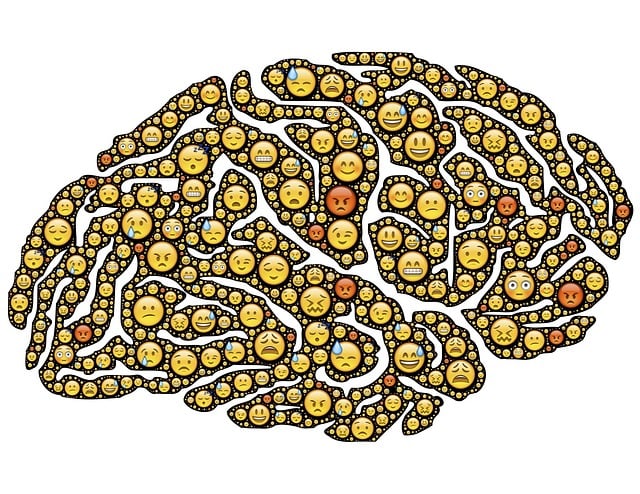Mental illness stigma, particularly affecting marginalized survivors like those in Westminster Sexual Abuse Survivor Therapy (WSAST), hinders access to care due to internalized shame. Awareness campaigns and professional training are vital tools for countering these misconceptions and creating safe spaces. Integrating self-awareness exercises, positive thinking, and burnout prevention into therapy normalizes mental health conversations and fosters trust. Community engagement through WSAST's workshops and programs further reduces stigma, promoting resilience and stress management techniques, ultimately enhancing support for survivors' healing journeys.
Stigma surrounding mental illness persists, creating barriers for those seeking support. This article explores strategies to reduce stigma, focusing on clinical settings, community engagement, and education. We delve into the profound impact of societal attitudes on mental health seekers, particularly vulnerable populations like sexual abuse survivors in Westminster. By understanding the roots of stigma, implementing effective interventions, and fostering community awareness, we can work towards a more inclusive and supportive environment for all.
- Understanding Stigma and its Impact on Mental Health Seekers
- Strategies for Effective Stigma Reduction in Clinical Settings
- Community Engagement and Education: A Long-term Approach to Changing Mindsets
Understanding Stigma and its Impact on Mental Health Seekers

Stigma surrounding mental illness can have profound effects on individuals seeking support and treatment. It often creates a barrier that prevents people from talking openly about their struggles, leading to isolation and delayed access to care. This is especially true for marginalized communities, such as sexual abuse survivors in Westminster, who may face additional challenges due to the sensitivity of their experiences. The impact of stigma can be devastating, exacerbating existing mental health issues and hindering one’s ability to heal.
Understanding stigma involves recognizing the societal beliefs and attitudes that devalue individuals with mental illnesses. This internalized shame can discourage survivors of sexual abuse from sharing their stories and seeking therapy. For example, a survivor might fear judgment or believe they are to blame for the trauma they experienced. Mental health awareness campaigns play a crucial role in countering these misconceptions, emphasizing that seeking help is a sign of strength and an essential step towards emotional healing processes. Furthermore, training risk assessment for mental health professionals can ensure they create safe spaces, fostering trust and encouraging vulnerable individuals to come forward.
Strategies for Effective Stigma Reduction in Clinical Settings

Stigma reduction in clinical settings plays a pivotal role in fostering an inclusive environment for mental health patients, especially those who have experienced traumatic events like sexual abuse. One effective strategy is to integrate self-awareness exercises into therapy sessions. These exercises encourage individuals to reflect on their thoughts and emotions, promoting understanding and self-acceptance. By normalizing conversations around mental health, therapists can create a safe space where patients feel comfortable sharing their experiences without fear of judgment.
Additionally, incorporating practices that cultivate positive thinking and burnout prevention can significantly contribute to stigma reduction. Encouraging positive affirmations and coping mechanisms helps individuals challenge negative beliefs about themselves and their conditions. Preventing burnout among healthcare professionals is equally crucial, as exhausted staff may inadvertently perpetuate stereotypes or show less empathy towards patients. A supportive clinical environment, combined with these strategies, can lead to more successful outcomes for survivors of sexual abuse, ultimately breaking down barriers associated with mental illness stigma.
Community Engagement and Education: A Long-term Approach to Changing Mindsets

Community engagement and education are powerful tools in the long-term fight against mental illness stigma. By bringing people together and fostering open conversations, communities can challenge stereotypes and promote understanding. This approach is essential for creating a supportive environment where individuals, especially those who have experienced trauma like sexual abuse, feel comfortable seeking help without fear of judgment.
Westminster Sexual Abuse Survivor Therapy (WSAST) is an excellent example of an organization utilizing community engagement to empower survivors. They offer resilience-building workshops and stress management techniques aimed at promoting emotional well-being. These educational initiatives not only help survivors process their experiences but also equip them with tools to navigate life’s challenges, ultimately reducing the impact of stigma associated with mental health struggles, especially in communities where such issues are often overlooked or stigmatized.
Mental illness stigma reduction is a multifaceted approach that requires efforts from clinical settings, community engagement, and education. By implementing strategies like those discussed for Westminster Sexual Abuse Survivor Therapy, we can create a more inclusive environment. Community involvement and long-term educational initiatives are vital to changing mindsets and ensuring mental health seekers receive the support they need without fear of judgment or discrimination. Through these efforts, we can foster a society that promotes mental wellness and embraces diverse experiences.














